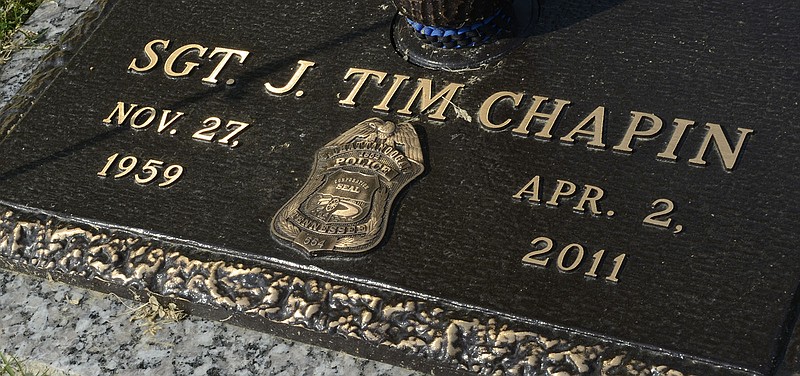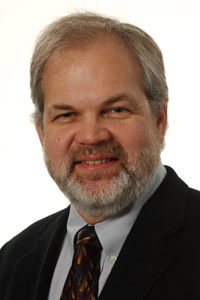James Chapin died on March 12 of this year. His obituary said he served first in the Navy, then Army intelligence for 20 years, as a law enforcement officer, math teacher and mayor of Powell's Crossroads. I knew him as a father.
I first met Mr. Chapin 24 years ago, on a bicycle ride, exploring my new geographic home in the Tennessee Valley. One spring Saturday I attempted my inaugural ascent up Suck Creek Road.
It was a monumental climb for a newly relocated flatlander. I made it past the cement plant, over Suck Creek, and up the winding curves. I passed a few dilapidated buildings near the town of Suck Creek and a dirt road cutting up toward Prentice Cooper State Forest. Pedaling forcefully, slowly, I cranked each turn so as not to stop completely and have to regain momentum. The morning light was still gray as I crested the hill. At the summit, I assumed the aerodynamic rear up position and raced full tilt into the valley below.
There is not much in Powell's Crossroads, a couple of cinder block buildings, an American flag hanging from one, rusted cars in front of a garage, and some backhoes and front loaders. Mr. Chapin lived near the main intersection of Powell's Crossroads; it was idyllic and pastoral - hay rolls in the fields to the right, newly roofed barns in the distance and the bluffs of Signal Mountain above. Over the years I would stop and talk, or walk with him to the park up the road.
He was avuncular and content, and I enjoyed his company.
On the morning of April 2, 2011, the news blared with reports of an officer down. Those of us living in Chattanooga experienced the same feelings we were to have after the shootings at the Naval recruitment center in 2015. Sgt. Tim Chapin had responded to a mid-morning robbery near Big Lots off East Brainerd Road. His partner was close behind but could not stop the fatal bullet.
Tim, nearing retirement, would not get those years to spend with his family. The repercussion of this event was wide ranging and deep, but this is not that story; rather this is a father's story.
When I saw Mr. Chapin weeks later, his bereavement was profound. He went through the motions of answering my questions, but he was unengaged, a hollow man, a shell. Over the next several years, I never saw Mr. Chapin return to his previous level of vitality. It was as if his inner life force was buried with Tim.
Over the past few years in my circle of friends and acquaintances, I have been struck by the number of sons who have died. While the circumstances differ, in each case, the grief of the family is profound, and the grief of the father is wrenching.
From the time a father first holds his newborn son, there courses through his hands an immutable, complex bond.
In his infancy, a father says to his son, "I will protect you through these times."
In his childhood, a father says, "I will help you understand the world. I will help you become strong."
In his adolescence, a father says, "I will help you learn compassion for your fellow man." Then, when that time comes for independence, a father says, "I will send you on your way, to follow your heart and your destiny, though part of my heart will always be with you."
In our hearts, our sons embody the best of all the things that we are. We wish for them the opportunities that we did not have; we hope in some way they will change the world. We encourage their grit, relish their struggles, take pride in their victories and celebrate their tenderness. We dream for them a full future, a healthy planet on which to live and a just society in which to grow.
When we bury a son, we crumble inside. How can we bear this loss? How can we go on? How did David go on when Absalom's death was reported? How did Abraham envision a future without Issac?
In our modern society the resources a father can access are limited. Childhood friends are close only in our memories, families are scattered far and wide, and neighborhoods are things we drive through on the way to work.
Perhaps we need a tribe, as Sebastian Junger suggests, to process grief communally. Perhaps we need an accessible assemblage of men who understand at a gut level what a son represents. Perhaps we need the chance to mentor another young man, to be a father of a different sort. None of these options replace a son who is lost, but maybe they become the vehicles of grace through which we process our grief.
David Wendt, MD, FACC, is a practicing cardiologist at the Chattanooga Heart Institute.

